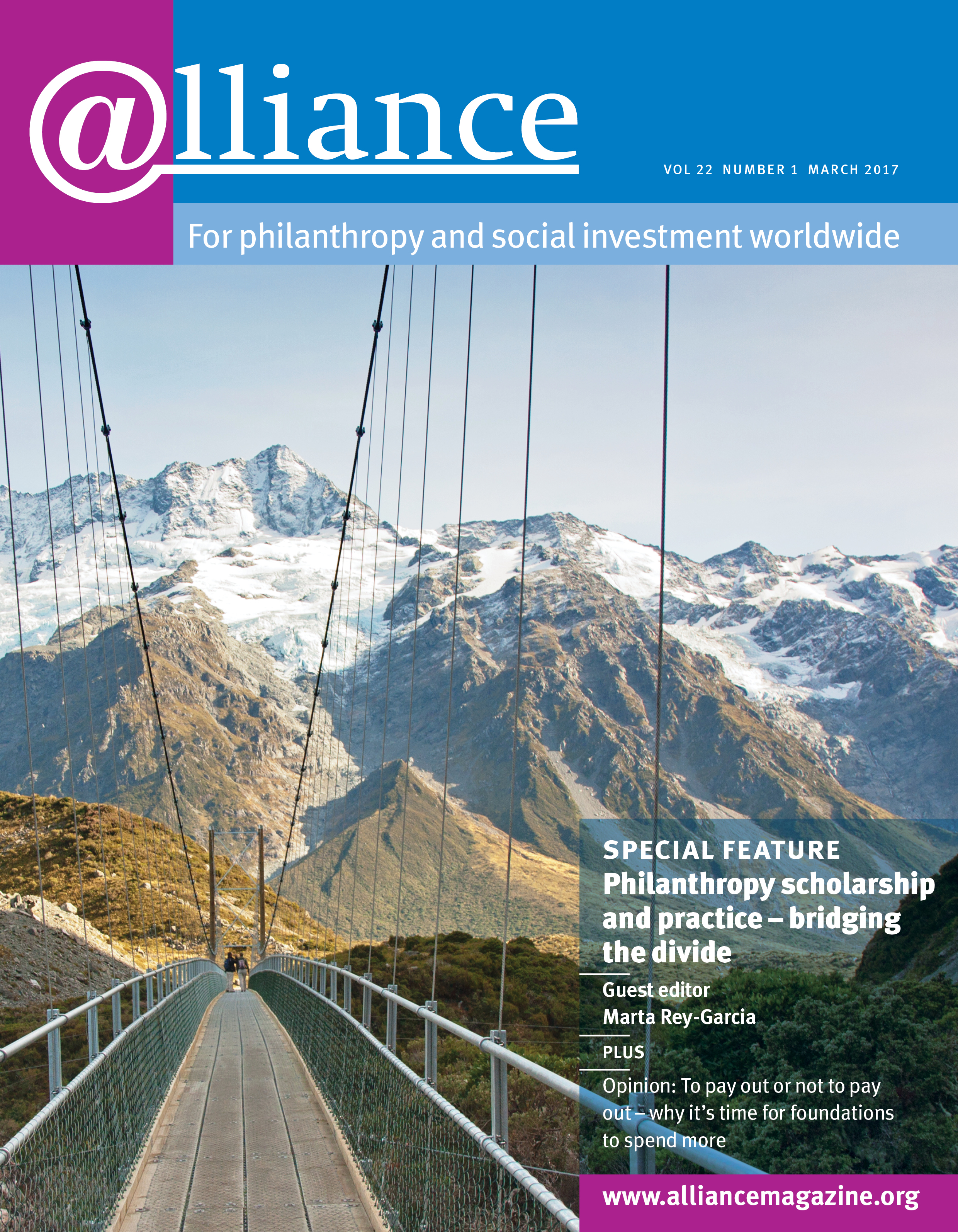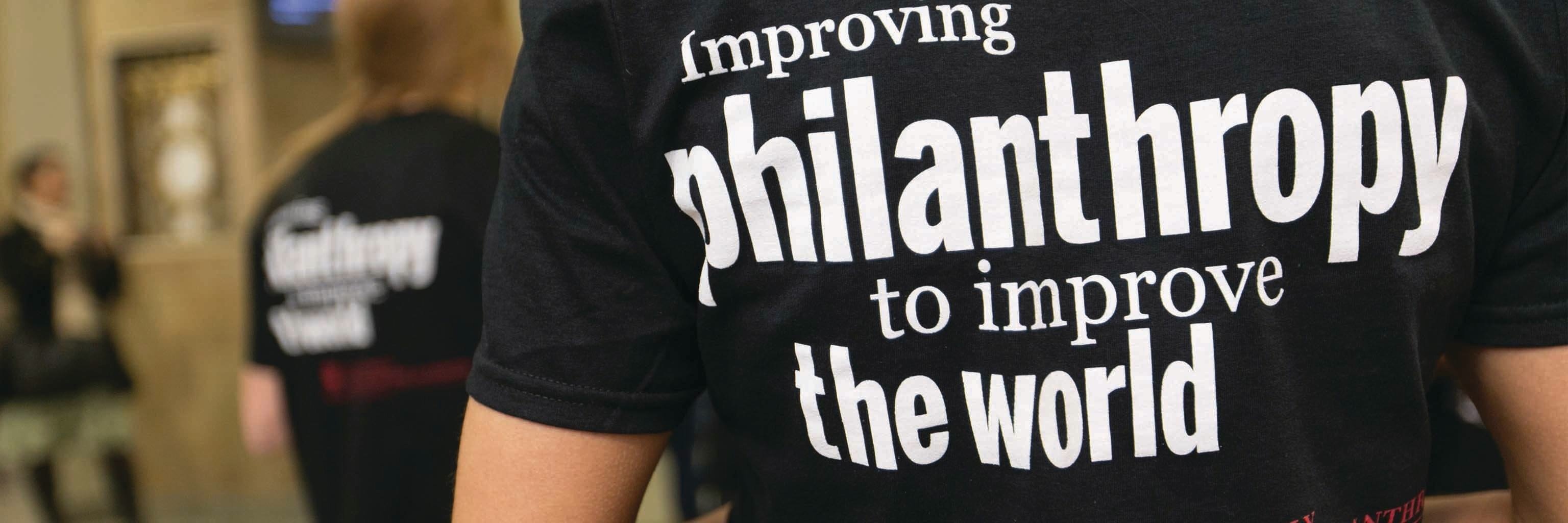The call for transparency and accountability in private efforts to carry out public good has focused most of the attention of formal education on non–profit management. Indeed, the dominant model for third sector education programmes today is non-profit management, not only in the US but increasingly around the world. These programmes have been important in helping make the organizations and structures of philanthropy more professional and they continue to be important. However, they are not enough.
As the work of non-profit organizations becomes increasingly complex, and as philanthropy develops and the demands on it become greater, forms of research and education need to broaden accordingly to embrace the needs of both donors and recipients.
Growing wealth in many parts of the world has intensified the call for expanding philanthropy globally. As governments face social and human needs that they cannot meet alone, there are increasing demands for philanthropy to play a larger role. In fact, in 2016 the vice chair of China’s National People’s Congress Standing Committee indicated that philanthropy would be a pivotal force in the country’s poverty alleviation. There are signs that philanthropy is rising to the challenge.
The Million Dollar Donors Report 2016, produced by Coutts & Co private bank and the Indiana University Lilly Family School of Philanthropy, found that million dollar-plus giving had tripled across the US, the UK and the Middle East since the first edition of the report in 2013.
However, the continued development of a strong philanthropic sector needs more than non-profit management programmes. It needs forms of education that include the arts and humanities and the social sciences, as well as sciences like psychology, in addition to professional courses in administration and management, finance and budgeting, and planning and evaluation. I have at least two grounds for saying so.
Expanding education in our field to include perspectives from the liberal arts and the social sciences broadens and enriches non-profit leaders’ understanding of philanthropy and the daily work that they do.
First, expanding education in our field to include perspectives from the liberal arts and the social sciences broadens and enriches non-profit leaders’ understanding of philanthropy and the daily work that they do.
For example, economists have long been engaged in studying and teaching about philanthropy, fundraising and organizational efforts. They and sociologists have valuable perspectives to add. Likewise, psychologists have helped us understand that donors and volunteers derive physical and psychological benefits from contributing to the public good and intervening in the lives of others.
Henry Rosso, a pioneer of professional fundraising and founder of The Fund Raising School at Indiana University said: ‘Fundraising is the gentle art of teaching people the joy of giving.’ It turns out he was right. But of course this phenomenon has different iterations globally based on historical and cultural context.
Second, the foundation for philanthropy is trust. One of the hallmarks of the modern era of the non-profit sector is a growing concern with accountability and, while a focus on effective programmes and efficient operations are essential to trust, if we are to see the philanthropy sector continue to develop across the world, we will need to move from a consideration of outputs to approaches that also take account of outcomes and impacts.
The larger and more complex our organizations become the more we require sophisticated planning, management, fundraising and evaluation. Effective management of non-profits is one key element leading to the accountability and transparency that help build trust.
Understanding donors, philanthropists and funders, beginning from understanding their perspectives, requires sophisticated approaches by non-profit sector leaders who would carry out the public good. And acquiring that understanding depends on educational programmes that provide broad perspectives on philanthropy as a deeply human endeavour.
Eugene Tempel is founding dean emeritus of the Lilly Family School of Philanthropy, Indiana University. Email etempel@indiana.edu







Comments (0)